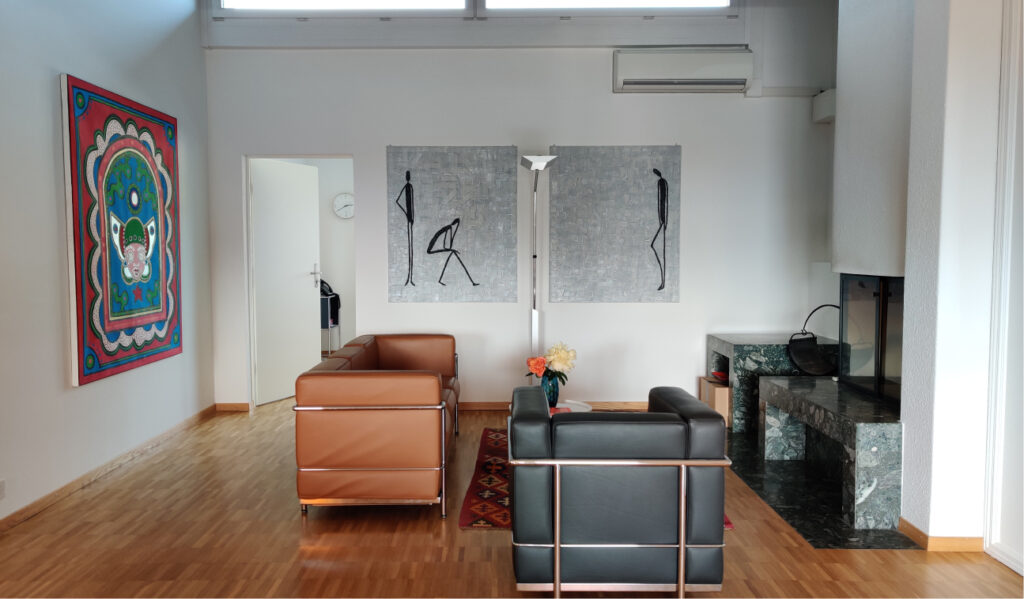There is hardly anything more unpleasant for tenants than being confronted with problems in their rented flat or house on a daily basis. Whether it’s a broken heater in winter, a dripping tap or a patch of mould on the wall – unfortunately, defects as those occur frequently and affect both short-term and long-term tenants, often regardless of how old the rental property is or what condition it is in.
The question quickly arises: Who is responsible for repairing the damage? Am I responsible as a tenant, or does the responsibility lie with the landlord?
This article explains what is legally considered to be a defect in a rental property and what rights and obligations both tenants and landlords have when it comes to rectifying these defects.
What is meant by a defect in the rental property?
A defect in the rental property exists if the flat or rented property is no longer suitable for the contractually agreed use or if promised features are missing. This means that the actual condition of the rental property differs from the condition that the landlord is obliged to provide according to the rental agreement or the law. A defect can refer to physical damage such as defective heating, leaky windows or mould, but also to the fact that promised features (e.g. particular quietness or certain amenities) are not present. The legal consequences of this depend, on the one hand, on the severity of the impairment and, on the other hand, on whether the tenant or a person for whom they are responsible is responsible for the defect (Art. 259a Abs. 1 OR).
Fault of the tenant
If the tenant is responsible for the defect, the landlord is not liable under Art. 259b ff. OR. Instead, the tenant may be liable for damages under Art. 97 OR.
Minor defects
In the case of minor defects – such as a burnt-out light bulb or a dripping tap – the tenant must pay for the repair themselves in accordance with Art. 259 OR. In practice, minor defects are generally considered to be damage costing up to around CHF 100–150.
Liability of the landlord
The landlord is also liable for defects even if he is not at fault or the tenant does not report the defect immediately. However, if the tenant fails to report the defect, he may be held liable for any consequential damage resulting from the delayed report. If a moderate or serious defect occurs that significantly impairs the normal use of the rented property, the tenant is entitled to the following rights under Art. 259a OR:
- Removal of defects – Art. 259b OR
- Reduction of rent – Art. 259d OR
- Compensation for damages – Art. 259e OR
- Deposit of rent – Art. 259 g/h OR
Removal of defects – Art. 259b OR
The landlord is obliged to remedy any defects that arise within a reasonable period of time. If he fails to do so, the tenant may – subject to Art. 259c OR – invoke the following rights:
- Extraordinary termination in accordance with Art. 259b lit. a OR – If there is a serious or at least significant defect, the tenant may terminate the rental agreement without notice. He does not have to set an additional deadline for the landlord to remedy the defect, since the landlord knows the defect and has failed to remove it.
- Substitute performance in accordance with Art. 259b lit. b OR – In the case of moderate defects, the tenant may remedy the defect themselves or have it remedied by a specialist and pass on the costs to the landlord.
In accordance with Art. 259c OR the right to have the defect remedied does not apply if the landlord provides a full replacement for the defective item within a reasonable period of time.
Reduction of rent – Art. 259d OR
The tenant may request a reduction in rent in the event of a moderate or serious defect. The courts apply a certain ‘materiality threshold’ in this regard. The impairment in the use of the rented property must amount to at least 5% or 2% in the case of a permanent impairment. The right to a rent reduction exists until the original, contractually agreed condition of the rental property has been fully restored.
Compensation for damages – Art. 259e OR
The landlord is liable for damage suffered by the tenant as a result of defects in the rented property.
Deposit of rent – Art. 259g/h OR
When renting immovable property, e.g. residential or commercial premises, tenants have the option of depositing the rent if the landlord fails to remedy any defects. The following conditions apply:
- There must be a defect that the landlord is obliged to remedy.
- The tenant must request the landlord in writing to remedy the defect and at the same time threaten to deposit future rent.
- A reasonable deadline must be set – the length of this depends on the cost of the repair and the urgency of the problem.
Important points regarding the deposit:
- Future rent can be deposited as long as the defect has not been remedied.
- The entire rent may be deposited, regardless of the severity of the defect.
- Payment is made to an agency designated by the canton.
Please note: Simply withholding the rent does not meet the legal requirements and results in the tenant being in default of payment.
Our law firm provides advice on tenancy law and the rectification of rental defects. Please feel free to contact us without obligation if you have any questions about tenancy law and the rectification of rental defects.



